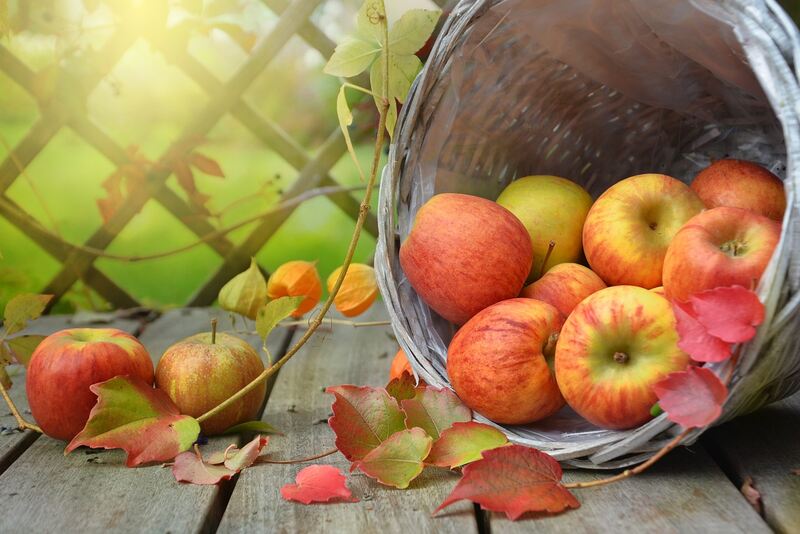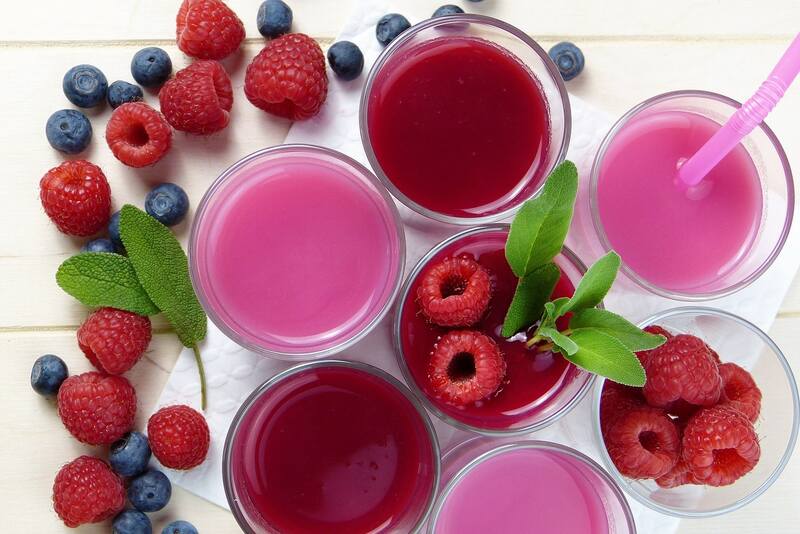Analyzing the Nutritional Differences: Juice vs. Whole Fruits
Jan 09, 2024 By Nancy Miller
When it comes to a healthy diet, fruits often take center stage, revered for their natural sweetness and richness in essential nutrients. But, the question of how to best consume fruits often sparks debate: should we opt for the whole fruit or its juice? Both bear the promise of vitamins and natural goodness, yet their nutritional profiles differ significantly. This article delves into the pros and cons of each, aiming to help you make an informed decision for your health and lifestyle.
The Nutritional Content of Fruit and Fruit Juice
Fruit is a nutrient-dense food, often containing high amounts of dietary fiber, vitamins, minerals, and antioxidants. For example, one medium-sized apple provides about 4 grams of fiber, 14% of the daily recommended intake of vitamin C, and small amounts of potassium and magnesium. Fruits' high fiber content helps regulate digestion and promote feelings of fullness, making them a valuable addition to any diet. Moreover, the vitamins and minerals in fruits support a strong immune system and overall health.
On the other hand, fruit juice offers a concentrated source of vitamins but lacks the dietary fiber present in whole fruits. During the juicing process, the skin and pulp of fruits are often discarded, removing most of their fiber content. For instance, a glass of apple juice may contain the juice of three or more apples, but it only provides around 0.2 grams of fiber. Additionally, some commercial fruit juices may also have added sugars and preservatives, which can decrease their nutritional value.
The Health Benefits of Whole Fruit
Whole fruits offer a myriad of health benefits, thanks to their rich array of nutrients and fiber. Here's a look at some of the key advantages of incorporating whole fruits into your diet.
Packed with Dietary Fiber
Whole fruits are high in dietary fiber, a component that plays a crucial role in maintaining digestive health. Dietary fiber aids in regular bowel movements, helps control blood sugar levels, and might even lower your risk for heart disease by reducing levels of "bad" LDL cholesterol.
Promotes Satiety
The fiber in whole fruits contributes to feelings of fullness, which can be especially beneficial for weight management. When you eat an apple, for example, the bulk of the fiber fills your stomach, signaling your brain that you've had enough to eat. This can prevent overeating and unplanned snacking, thereby aiding in weight control.
Lowers Risk of Chronic Diseases
Regular consumption of whole fruits has been linked with a lower risk of chronic diseases, including heart disease and certain types of cancer. The antioxidants found in fruits combat harmful free radicals in the body, reducing inflammation and safeguarding cellular health.
Provides Hydration
Many fruits have a high water content, helping to keep you hydrated. Hydration is not only essential for bodily functions but also helps maintain skin health, giving it a youthful, radiant glow.
Considerations When Drinking Fruit Juice
While fruit juice can be a convenient way to increase your vitamin and mineral intake, it's important to consider its potential downsides.
High in Sugars
Fruit juice, particularly those processed and store-bought, often contain high levels of sugars. Even without added sugar, fruit juice can have high levels of natural sugars as it's a concentrated form of fruit. Consuming too much sugar can lead to health problems such as weight gain, tooth decay, and increased risk of type 2 diabetes.
Lacks Dietary Fiber
As stated earlier, fruit juice lacks the dietary fiber found in whole fruits. This means it doesn't promote feelings of fullness in the same way that eating whole fruit does, which might lead to overconsumption. Furthermore, diets lacking in fiber can lead to digestive problems such as constipation.
May Contain Additives
Some fruit juices, especially those that aren't labelled as 100% juice, may contain additives like sugar and even artificial flavors or colors. These additives can make the juice more palatable, but they can also detract from its nutritional value and introduce potentially harmful compounds into your diet.
Excessive Calorie Intake
Fruit juices can contribute to a higher calorie intake, especially when consumed in large amounts. This is because juices lack the fiber that would normally slow down the consumption process and fill you up.
Making the Right Choice: Fruit or Fruit juice?
When it comes to choosing between fruit and fruit juice, it depends on your individual dietary needs and preferences. If you're looking for a fiber-rich snack that promotes satiety, whole fruit is the way to go. However, if you're in need of a quick, easy-to-consume source of vitamins and minerals, a small glass of 100% fruit juice can suffice.
It's essential to remember moderation is key, especially with fruit juice. Consuming it in excess can lead to high sugar and calorie intake, which can cause health problems. Always opt for 100% fruit juice without added sugars and limit your intake to a small glass a day.
Whole fruits, on the other hand, can be enjoyed in larger quantities due to their high fiber and low-calorie content. They also provide a range of health benefits, from improved digestion to reduced risk of chronic diseases. Therefore, incorporating a variety of whole fruits into your diet is a wise choice for overall health.
Tips for Incorporating Fruits and Fruit Juices into Your Diet
Whether you prefer fruit or juice, here are some tips to help you incorporate them into your diet in a healthy way:
- Choose Whole Fruit More Often: Whole fruits are more filling and provide more fiber than fruit juice. They also tend to be lower in calories.
- Watch Portion Sizes: If you enjoy fruit juice, keep your portion sizes in check. Stick to a small glass, and avoid consuming it as a filler between meals.
- Avoid Fruit Juices with Added Sugars: When shopping for fruit juice, look for products that are 100% juice and have no added sugars.
- Mix It Up: To ensure you're getting a wide range of nutrients, eat a variety of fruits and opt for different types of fruit juice.
- Include Fruits in Your Meals: Add fruits to your breakfast cereal, salads, or use them as a healthy dessert.
Conclusion
Both whole fruits and fruit juices have a place in a balanced diet, each offering their unique benefits. Whole fruits are ideal for their fiber content and satiety factor, while fruit juices offer a quick and portable way to intake essential vitamins and minerals. However, it's crucial to moderate your consumption of fruit juices due to their high sugar and low fiber content. Opt for 100% fruit juice without added sugars whenever possible, and don't forget to incorporate a variety of whole fruits into your meals for maximum health benefits. By making wise choices, you can enjoy the bountiful flavors and health perks fruits have to offer.








